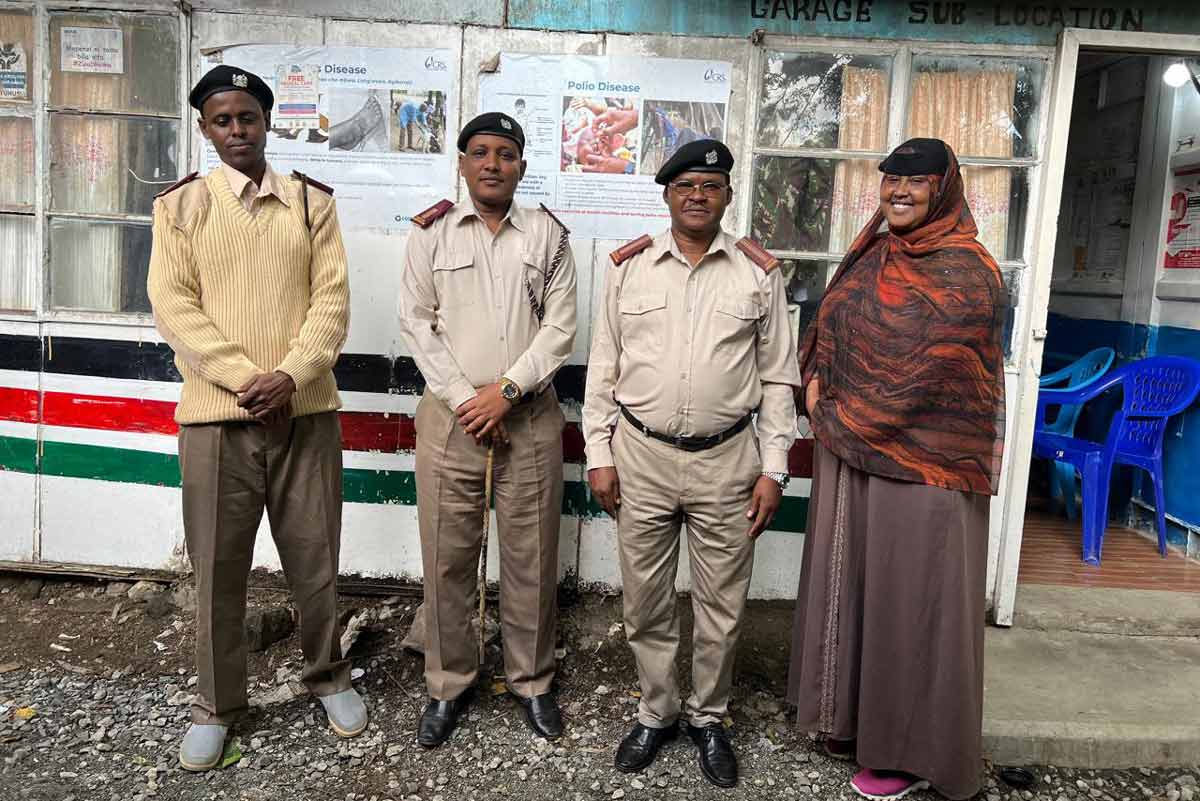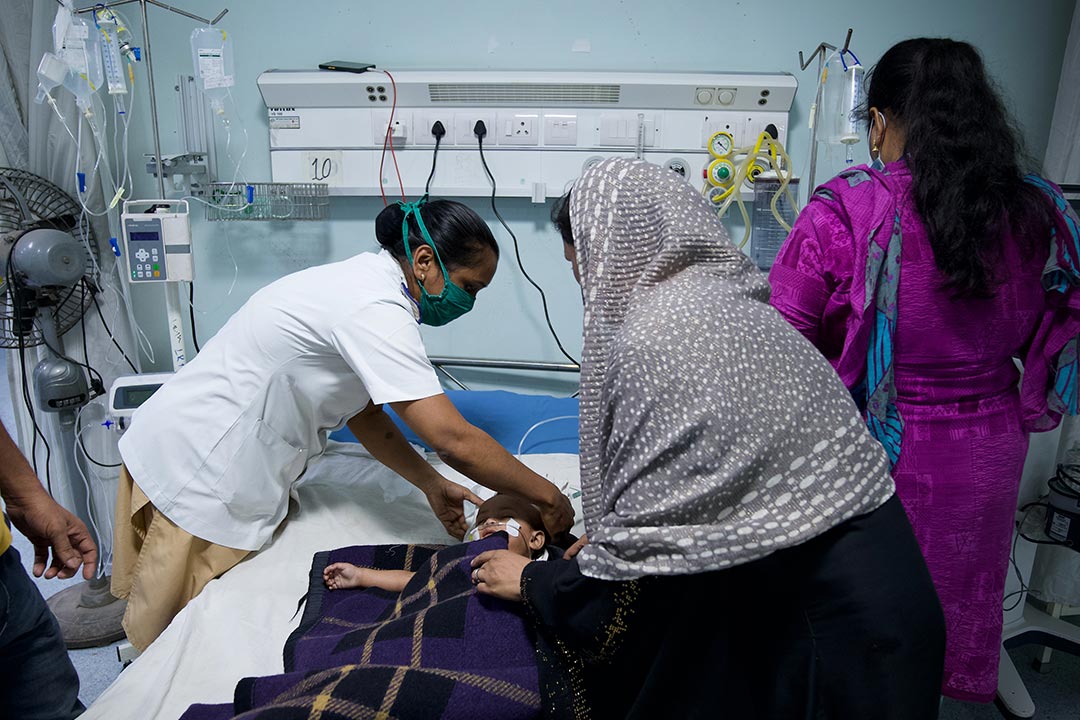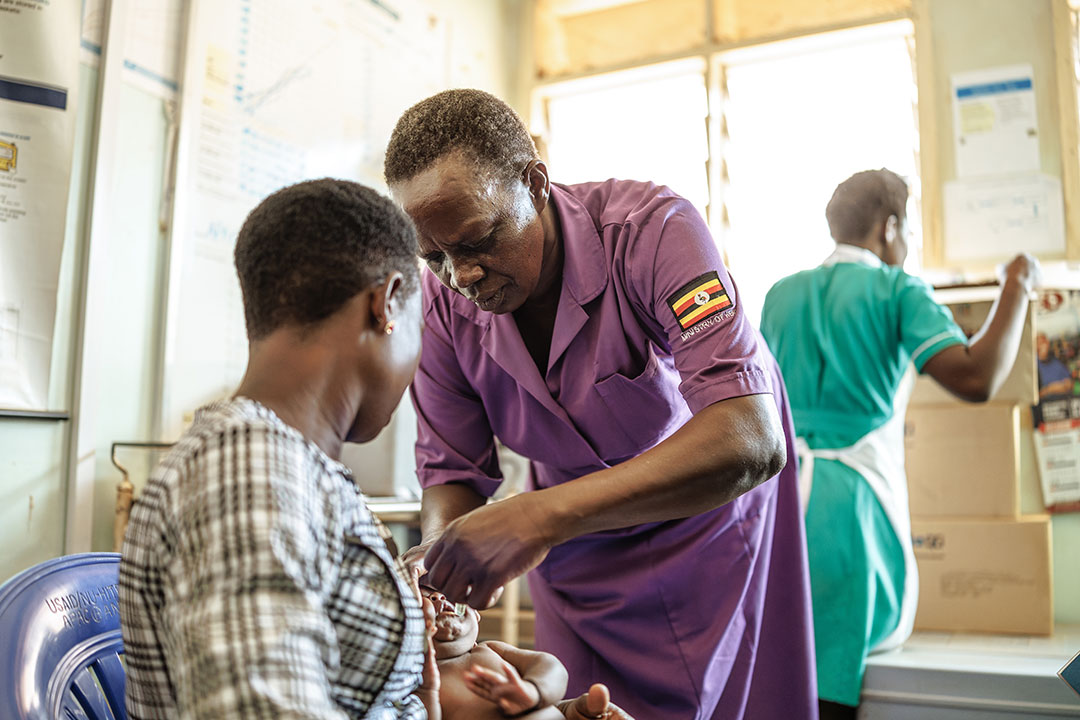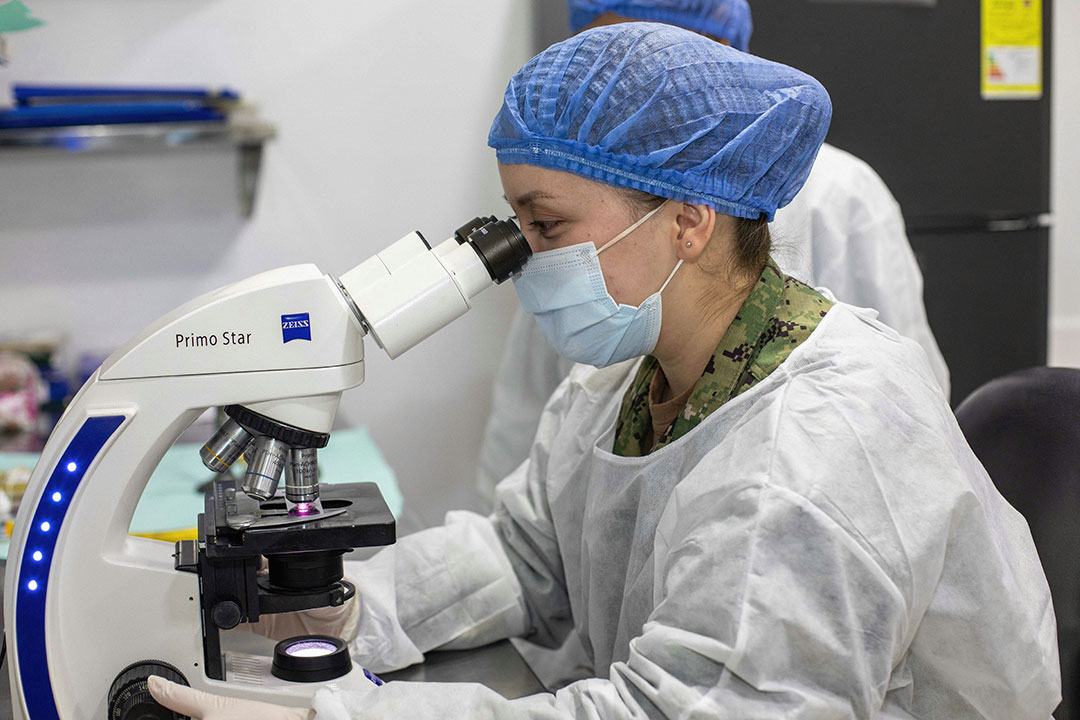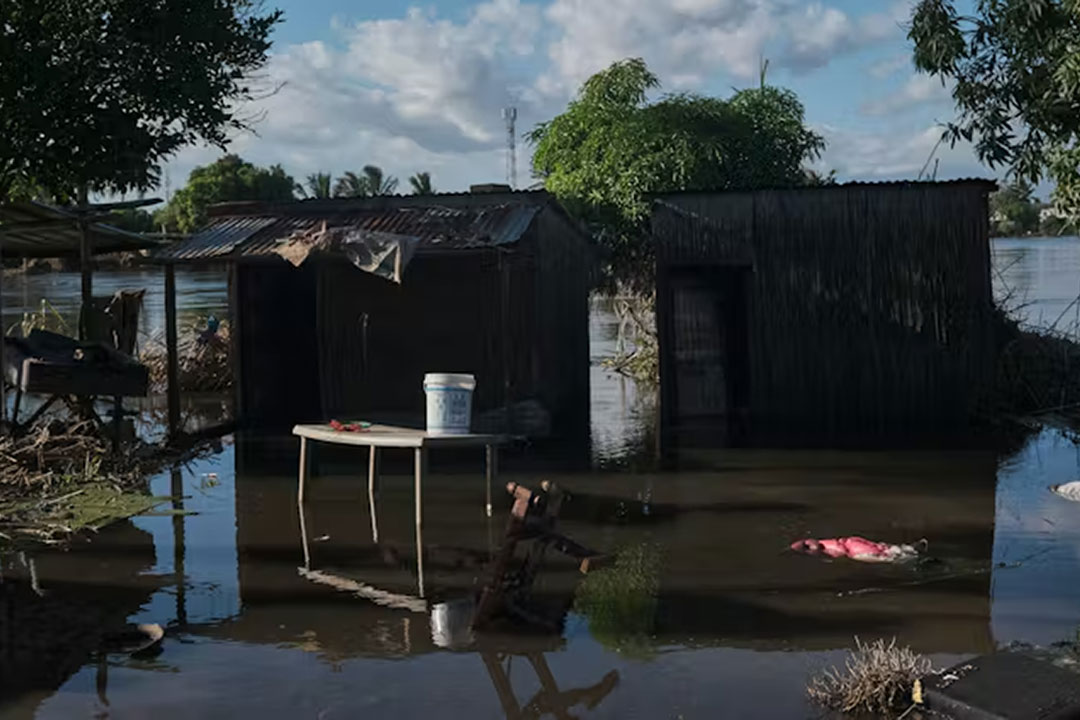How a 12-day health pop-up gave families a chance to catch up on care in Kenyan Maasailand
Staying on top of immunisation isn’t easy if you live hours’ walk from the nearest clinic, or if you’re packing up yet again to find grazing in a time of drought. But what if the clinic comes to you?
- 28 October 2025
- 5 min read
- by Lenah Bosibori
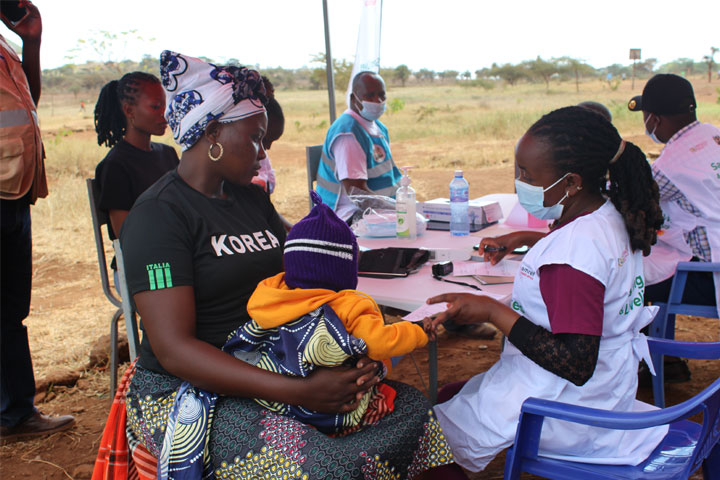
In Ishaeli village, on the border between Kenya and Tanzania, women have to endure hours under the scorching sun, walking thorny, shrubby paths in search of immunisation services for their young ones.
Lucy Tia, a mother of five who is currently nursing a two-month-old, is among the many who say that the distance and the drought have made accessing vaccines exceedingly difficult. “My child was supposed to get the rotavirus vaccine, but she missed it because I was unable to reach the nearest facility due to financial constraints,” said Tia.
But then, in June, health non-profit Entepesi Kenya, with support from Rocky Vista University, Hands for Health, Kilimanjaro Mission Hospital and the Ministry of Health in Loitoktok, held a 12-day medical camp in the area, covering a number of villages including Ishaeli.
Tia’s daughter was one of 1,827 patients seen at the camp, receiving the rotavirus vaccine dose that she had missed. Tia, meanwhile, received a dose of health education: “I learnt that vaccines help children grow healthy and protect them from preventable diseases.”
Maasailand medical camp
While Kenya’s national coverage rate with the third dose of the basic diphtheria, pertussis and tetanus-containing vaccine (DPT3) – a conventional proxy for vaccination coverage in general – stands at 91%, subnational data shows alarming gaps in protection. According to the Kenya Demographic and Health Survey (KDHS) 2022, just 44% of children in Kajiado county, which includes Ishaeli, aged 12–23 months qualified as fully vaccinated.
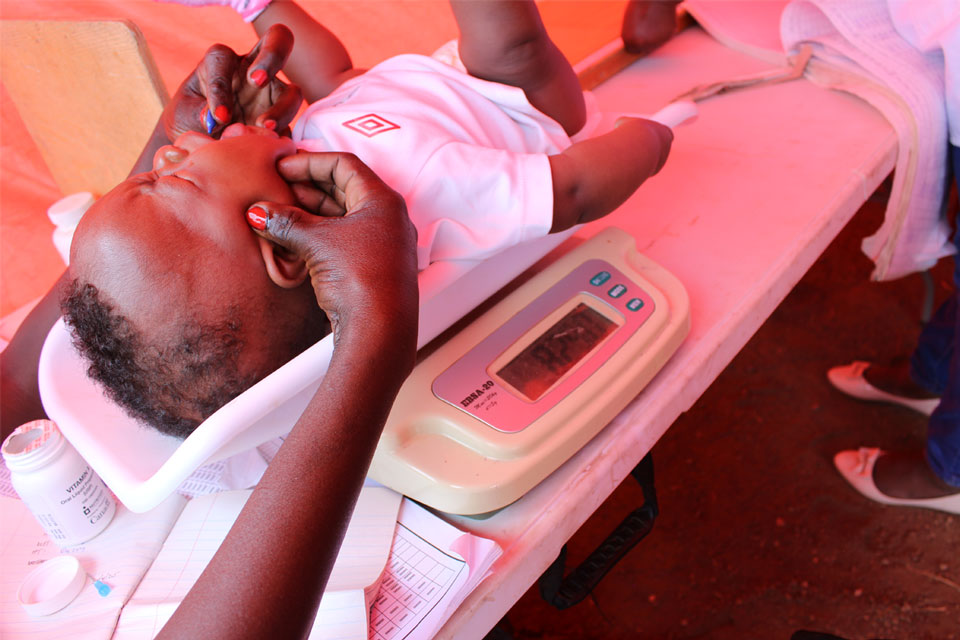
“The biggest challenges we face here is most health facilities are far from our homesteads. This makes it very difficult to reach them for our regular services,” Tia explains. “It is even harder when we don’t have enough money to cover the long journey as it is very hot to walk.”
Drought is another hindrance to accessing full immunisations leading to defaulters. “People in this area keep on moving due to drought, and when that happens, our children lose track of the immunisation services,” she adds.
The medical camp, she says, was a valuable remedy. She requests the organisers to consider providing the services at least once a month.
Follow-up
Jonah Simanka, a Community Healthy Assistant (CHA) in Mbirikani, agrees that the medical camp made a notable difference.
“The medical camp has touched many people. So many children were reached, getting their first-ever vaccine,” said Simanka. “We also referred many people with different ailments to Mbirikani Referral Hospital.”
Data from Entepesi tallies 97 immunisations, 11 malnutrition cases, 297 nutrition visits, 19 new cases of hypertension and 30 antenatal visits at the camp. But a one-off intervention is rarely enough. Follow-up is crucial.
Simanka relies on the Child Welfare Clinic (CWC) register to keep track of vaccination defaulters. Together with the Community Health Promoters (CHPs) they follow up in their households, reminding them of their next appointment.
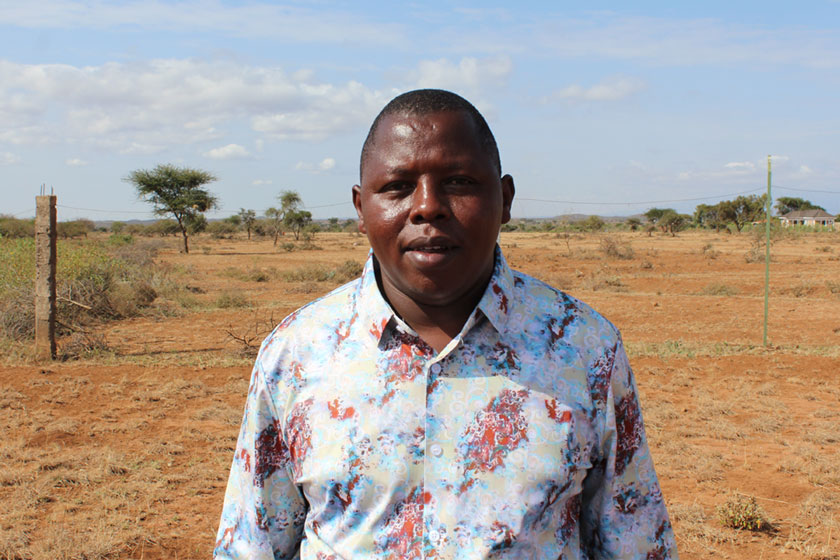
“Immediately after the camp ended, I compiled a list of defaulters and shared it in the CHPs’ WhatsApp group. To those not online, I sent out text messages,” says Simanka. “Each CHP then picked any additional member and within a short time, every defaulter was followed up.”
Simanka emphasises that reminders are essential to achieve full immunisation. “Many of those who came to the camp usually think that, that was the end of the services. People need to be reminded so that they can follow the appointments or clinics,” reiterates Simanka.
He adds that CHPs have been very helpful in areas where families keep moving because of drought. “Each CHP is assigned specific households,” he notes. “When they notice that a member is missing, they alert the WhatsApp group or send a text message. This way, other CHPs can quickly confirm if the family has moved and take note of any new households in their care.”
Have you read?
Simanka acknowledges that there is a need for frequent medical camps – but concedes too, that they are very expensive. “It is difficult to get partners, if we can get, we can be able to reach to everyone.”
Momentum
Nurse Jennifer Kelento works in Loitoktok Sub-County with the Expanded Programme on Immunization. She notes that when the medical camp started the turn-out was low, but as they carried on, people were mobilised.
“The medical camp reached zero-dose [unvaccinated] children. However, more mobilisation is required because many people are not aware of the importance of taking their children to health facilities or visiting medical camps.”
She explains: “The ones who are zero-dose are from parents who do not know the importance of vaccination. Others come from far, sometimes the roads are bad, during the rainy season and when its drought the temperatures are too hot for them to walk on the sun.”
Samantha Shackleton, co-founder and CEO of Entepesi Kenya, explains that her organisation operates on the basis of a Memorandum of Understanding with the county government, which links them up with all health facilities local to a prospective camp.
“Working with the local facilities, health staff, local hospitals provide a more long-term sustainability for the community because it not only builds trust, but it also opens their eyes to what is actually accessible at the hospitals,” she said.
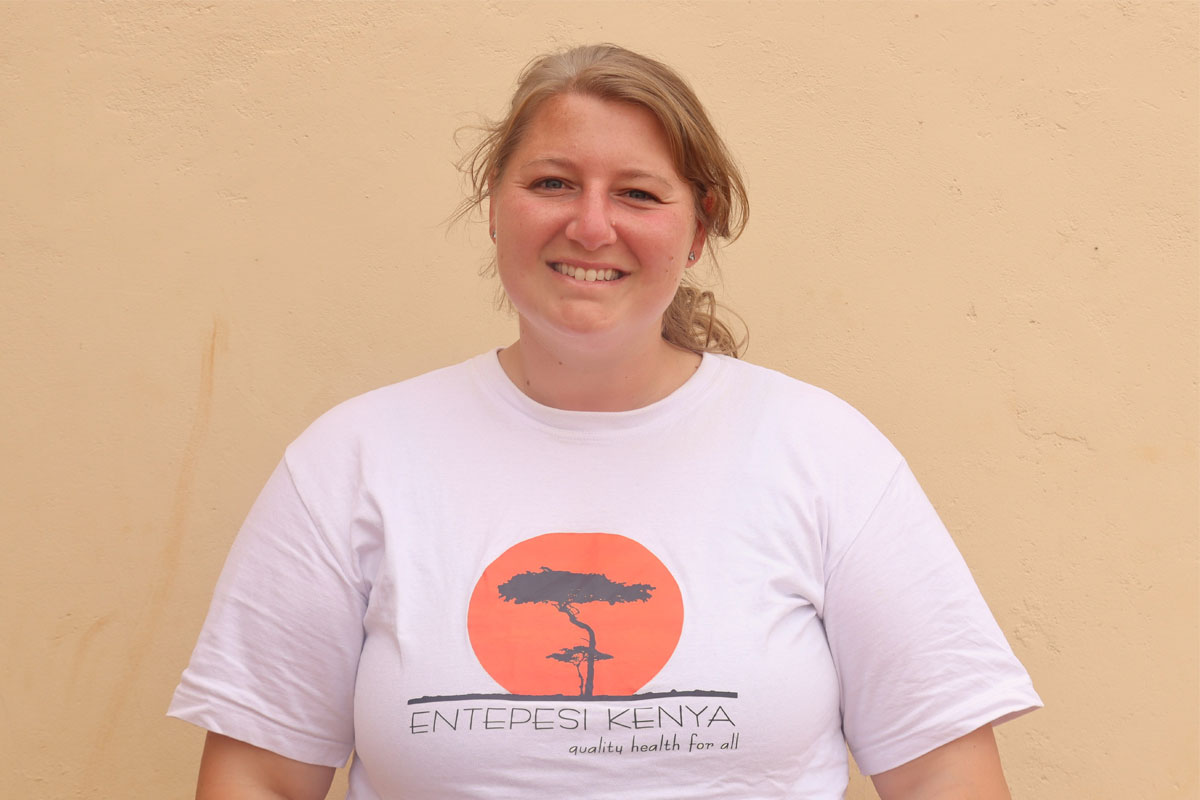
“By bringing the services to their doorsteps, we are restoring hope and dignity,” Shackleton explained, adding that community-based initiatives like the medical camps reach the vulnerable and underserved Maasai communities. “We also make sure that we have the necessary vaccines and nutritional supplements,” she says.
Having both on board is important, she explains. “Malnourished babies often struggle to respond well to vaccines. By providing both, we ensure the children are healthier and better protected.”
